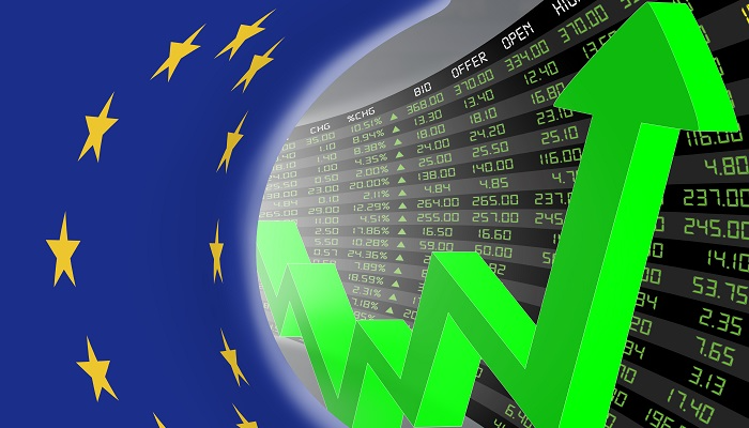An overview of the latest Eurozone economic data

The eurozone business activity grew strongly again in August, only dipping from July's two-decade high monthly pace, as a rapid vaccination against the coronavirus allowed more firms to reopen and customers to go forth.
The bloc's economy is running at full speed as reopening has had the expected positive effect on growth. Concerns about the impact of the Delta variant and input shortages remain but have not derailed the rebound thus far. The activity could have expanded faster without ongoing supply chain disruptions but fears for the new coronavirus strains may lead to renewed restrictions and continue to overshadow the optimism.
The EU's Flash Composite Purchasing Managers' Index, which tracks the activity in both, manufacturing and services sectors and is seen as a good indication of economic health, fell to 59.5 in August from 60.2 in July, just shy of 59.7 consensus, but remaining well above the 50 threshold which separates growth from contraction.
A Purchasing Managers' Index covering the eurozone dominant service industry ticked down to 59.7 in August from July's 15-year high of 59.8 and just below forecast at 59.8.
The eurozone manufacturers had another solid month, as sector's PMI remains well above the breakeven mark at 61.5, although below last month's 62.8 figure and the 62.0 forecast, while the index measuring the output that feeds into the composite PMI fell to 59.2 in August from 61.1 in July.
But supply delays, as the delivery times index was near a survey low, played again a key role in driving up the costs of the raw materials factories need. The input prices index was 87.3, although down from July's record high of 89.2.
Germany's services and manufacturing indices stay firmly in growth territory, confirming Europe's biggest economy remained on a recovery path.
In France, the euro zone's second-largest economy, growth in business activity slowed compared to July but remained resilient, as problems with supplies of goods and COVID-19 health protocols impacted trade.
On the other side, Britain's post-lockdown economic rebound slowed sharply as companies struggled with unprecedented shortages of staff and materials, although strong inflation pressures cooled a bit.
Markets' reaction on PMI data was minor as traders focused on worries about the Delta variant of COVID-19 obstructing growth as investors weighed up the possible timeline for tapering monetary stimulus ahead of US Federal Reserve Chair Jerome Powell's speech at Jackson Hole symposium.
Companies increased hiring in the euro zone at a near-record pace but were still unable to complete all new business coming in, building up a backlog of work at the third-fastest pace in survey history.
Only demand slowed marginally from July, suggesting the rebound will continue, while the services business expectations index, which measure optimism about the year ahead, dropped to 68.6 from 69.1.
Economists see the main risks to the economic recovery in potential spread of more virulent virus variants and the prolongation of supply chain issues, keeping the level of uncertainty around the forecast very high, although still expect a strong recovery over the coming quarters.
This article was submitted by Windsor Brokers.




